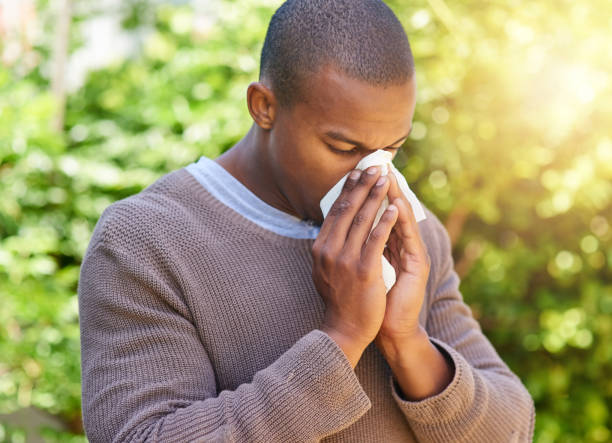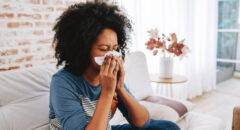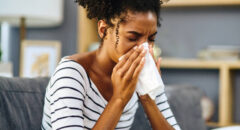
Some 35 million Americans suffer from sneezing, sniffling, stuffiness and itchy eyes due to spring allergies, according to experts from the American College of Allergy, Asthma and Immunology (ACAAI).
Why?
"People with spring allergies often don't realize how many things can aggravate their allergy symptoms, so they just muddle along and hope for an early end to the season," says Dr. Myron Zitt, former ACAAI president, in a college news release. "But there's no reason to suffer. A few simple adjustments in habits and treatment can make springtime much more enjoyable."
RELATED: Allergy Season Is Near: Be Prepared
Here are 3 ways to avoid spring allergies.
Protect Your Surroundings
Allergists recommend allergy-sufferers keep their house and car windows closed so pollen can't drift in from outdoors.
They also recommend making sure to use the right air filter. Inexpensive central-furnace or air-conditioning filters and ionic electrostatic room cleaners aren't helpful, the allergists say. Ionic electrostatic air filters release ions that can irritate allergies.
And whole-house filtration systems can only be effective if the filters are changed regularly.
Additionally, you can limit your exposure to allergy triggers through the following, according to the Mayo Clinic:
- Stay indoors on dry, windy days. The best time to go outside is after a good rain, which helps clear pollen from the air.
- Delegate lawn mowing, weed pulling and other gardening chores that stir up allergens.
- Remove clothes you've worn outside and shower to rinse pollen from your skin and hair.
- Don't hang laundry outside — pollen can stick to sheets and towels.
- Wear a pollen mask if you do outside chores.
RELATED: 5 Allergy Relieving Foods
Beware of Foods That Can Lead to Spring Allergies
The experts also note that some people with seasonal allergies may also suffer from allergies to closely related fruits, vegetables and nuts. This particularly relates to seasonal allergies due to grass or birch trees.
About one in five people with grass allergies and as many as 70 percent of people with birch allergies have these cross-reactions, known as pollen food allergy syndrome.
RELATED: How To Allergy-Proof Your Home
Understand the Triggers Behind Your Spring Allergies
People with allergies to birch or alder trees may experience tingling, itching and swelling around the mouth when they eat celery, cherries or apples.
People with grass allergies sometimes find tomatoes, potatoes or peaches problematic.
Although often not serious, reactions to these foods can be life-threatening in a small percentage of people. A life-threatening allergic reaction is called anaphylactic shock. High-risk people should carry a portable epinephrine pen.
RELATED: Worst Cities For Spring Allergies 2022: Is Yours On The List?
How to Get Relief From Symptoms
If you have been exposed to allergens, the following tips can help reduce your symptoms, according to Foothill Regional Medical Center:
- AVOID DIETARY TRIGGERS. Dietary triggers such as dairy, gluten, sugar, artificial sweeteners, and preservatives all can lead to increased inflammation in the nasal and respiratory pathways causing worse allergy symptoms.
- SIP SOME APPLE CIDER VINEGAR. Apple cider vinegar helps break up mucus in the body, letting you breathe again. Try diluting 1 to 2 tablespoons in a glass of water or with lemon juice.
- EAT SOME PROBIOTICS. Although mostly recognized for their use in balancing our gut bacteria, probiotics have been shown to support the immune system, which is also responsible for our allergic response to many triggers.
- FLUSH YOUR NOSE. Nasal irrigation is the draining of saline from one nostril through another in order to flush out the mucus. You can use sprays, bulb syringes, or Neti pots, which look like small teapots.
RELATED: 8 Seasonal Allergy Relief Tips
Allergists also encourage people to take their medicine even before their symptoms flare. It's also important to see an allergist who can suggest the best course of treatment.









